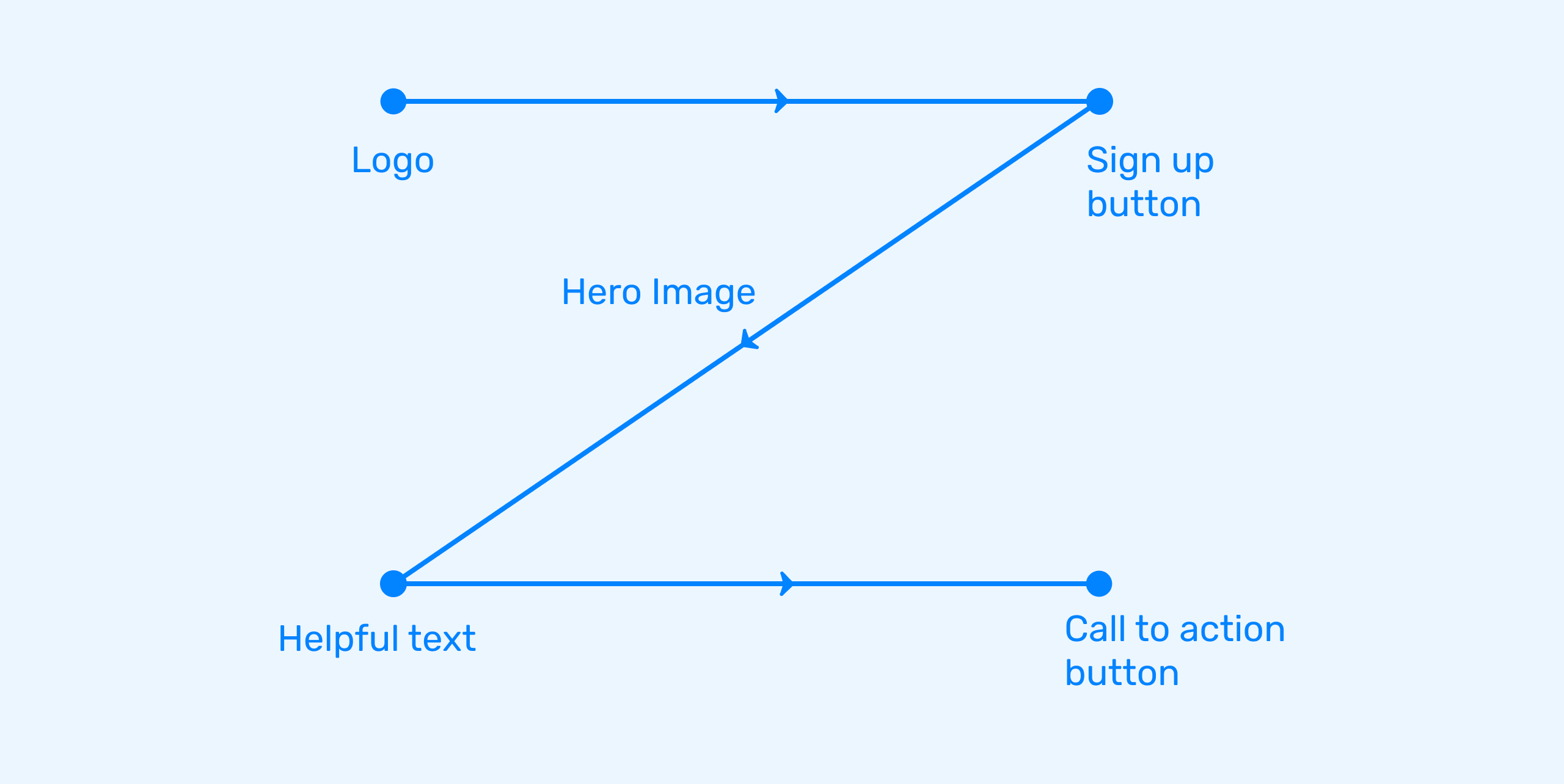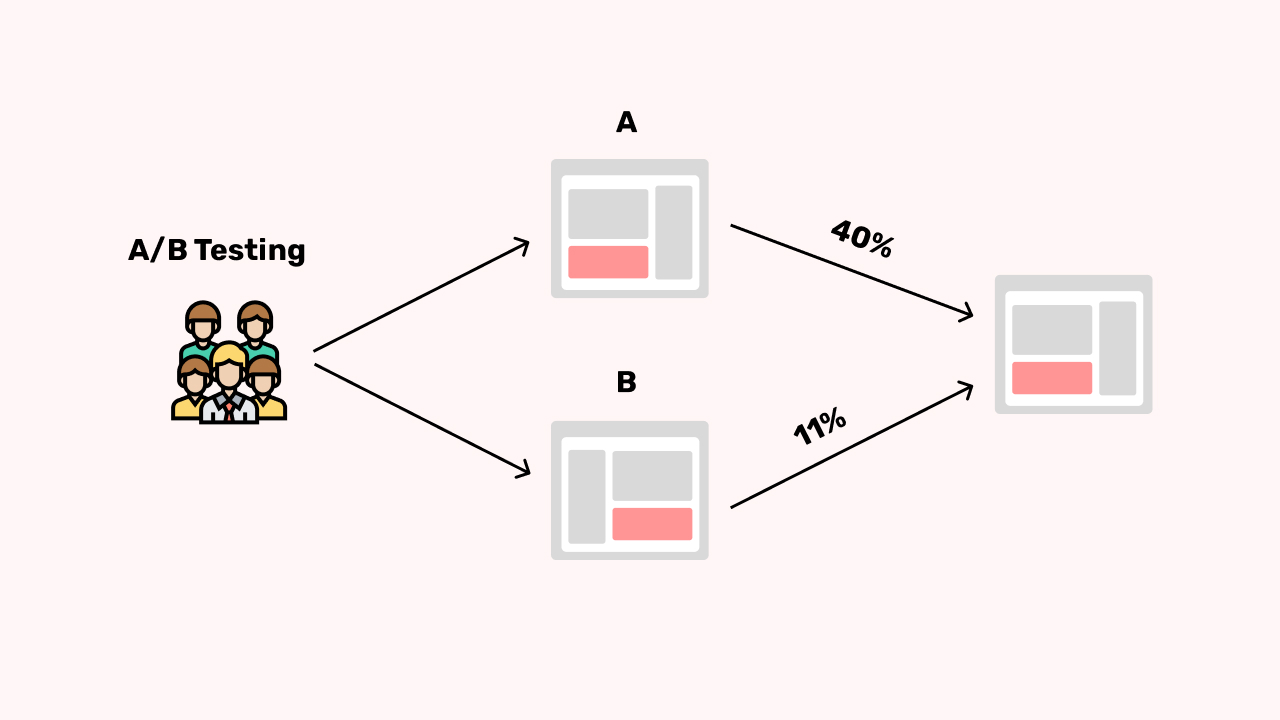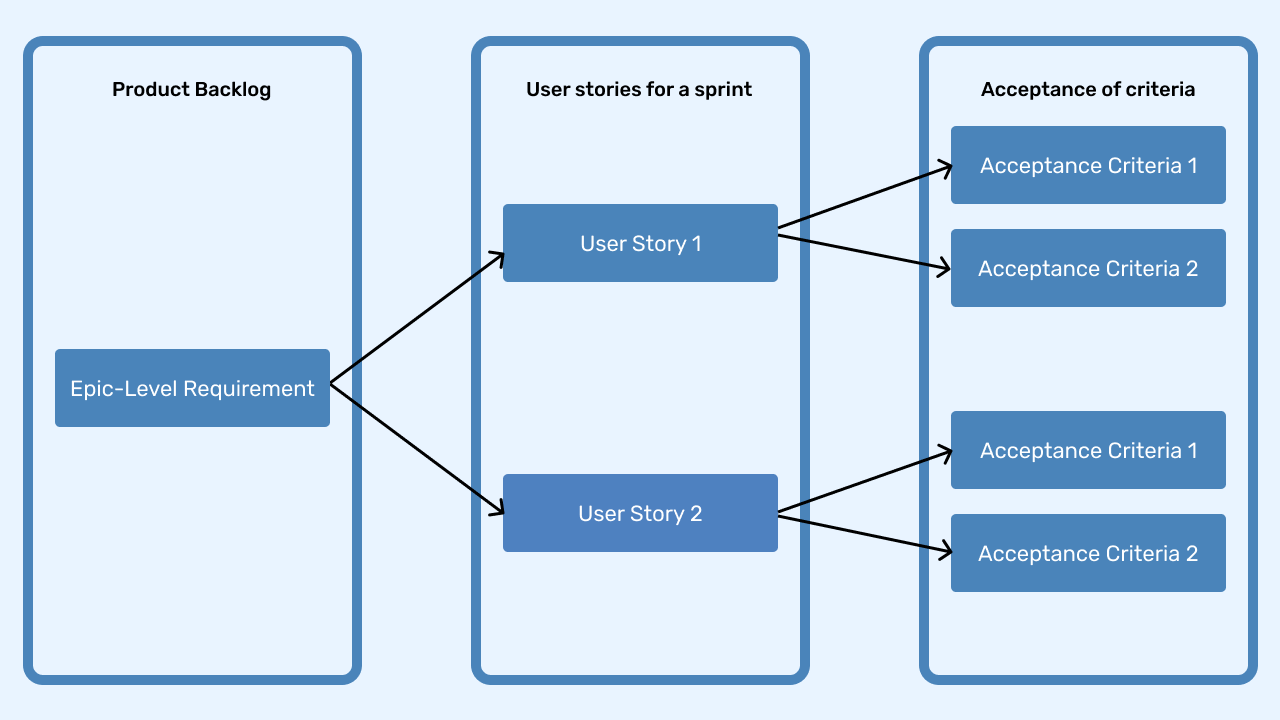What is Z Pattern?
Overview
Z-Layout is a great way to start any web design project because it addresses the core requirements for any effective site: branding, hierarchy, structure, and calls to action. In the design system, the Z-pattern suggests that the viewer will pass through two fallow areas.
The "Z pattern" is a term commonly used in the field of user experience (UX) and web design to describe the natural eye movement pattern that users tend to follow when scanning and processing information on a web page or other visual interface.
The Z pattern typically refers to the path that a user's eyes follow when they first glance at a web page or interface. It starts at the top left corner of the page, moves horizontally to the right, then diagonally down to the bottom right corner, and finally moves horizontally again to the left. This pattern resembles the shape of the letter "Z", hence the name "Z pattern".
The Z pattern is often used as a guideline in web design to help designers understand how users typically scan and process the information on a web page. By considering the Z pattern, designers can strategically place important content, call-to-action buttons, and other key elements along this path to optimize the visibility and effectiveness of the page's content.
It's important to note that the Z pattern is not a strict rule, and users may deviate from this pattern depending on the specific content, layout, and design of a web page. Eye-tracking studies have shown that users' eye movement patterns can vary depending on factors such as cultural background, reading habits, and individual preferences. Therefore, while the Z pattern can be a useful guideline, it's essential to conduct user testing and consider the specific context and characteristics of the target audience when designing web pages or other visual interfaces.

LET’S WORK TOGETHER
Boost your design scope with HealXRlabs
Book a call with us and get the party started!
Book A Demo


